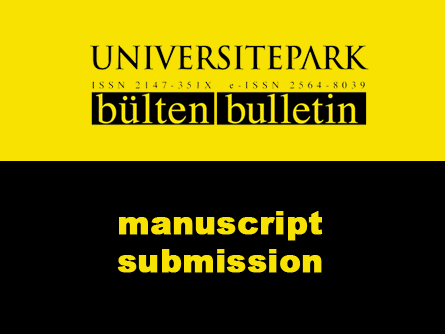The Role of Reading Skills on Reading Comprehension Ability of Turkish EFL Students
pp. 37-51 | Published Online: December 2015 | DOI: 10.12973/unibulletin.412.4
Ebru Kaya
![]() Full text PDF |
6951 |
3990
Full text PDF |
6951 |
3990
Abstract
Reading is a part of our daily lives. It is performed both for pleasure and information. Reading skills are important for the individuals since they foster comprehension in reading. If the students do not have knowledge of reading skills, they cannot be expected to be successful readers. Thus, they cannot achieve the level of comprehension required to pass exams in their own departments. For this reason, reading skills should be taught in universities for the students to be able to cope with comprehension problems. This case study aims to find out whether or not reading skills has a role on the reading comprehension ability of Turkish EFL students. This study is both a qualitative and a quantitative study which lasted for a duration of 14 weeks. Two groups were selected (experimental and control) among prep classes at Kahramanmaraş Sütçü Imam University. Both groups were administered a pre-test and questionnaire at the beginning of the study to find out if they were aware of reading skills. In addition, 10 students were chosen randomly for interview. During the study, reading skills were infused into the curriculum through designing lesson plans in accordance with the language content and topics for level C students, as determined by the Common European Language Framework. The lessons required the students to use reading skills before, during, and post reading. At the end of the study, the same questionnaire was re-administered. The students were given the post-test and then interviewed. The quantitative data were analyzed through descriptive statistics. The obtained data revealed that the students enhanced their comprehension ability provided that they were taught to use reading skills.
Keywords: reading skills, reading comprehension, Turkish EFL students
ReferencesAlderson, J. C. (2000). Assessing reading. Cambridge: Cambridge University Press.
Bedir, H. (1998). The effect of using cognitive learning strategies on reading comprehension ability of Turkish students. Doctoral Dissertation. The Institute of Social Sciences, Cukurova University, Adana, Turkey.
Bedir, H. (2000). Maintenance of cognitive and metacognitive strategies used by ELT students in reading comprehension. Encouraging strategic classroom applications, Yadim-Inged Conference 2000 Proceedings (pp. 32-45). Adana: Cukurova University.
Block, E. (1992). See how they read: Comprehension monitoring of L1 and L2 readers. Tesol Quarterly, 26(2), 319-343.
Brown, H. D. (2001). Teaching by principles: An interactive approach to language pedagogy (2nd ed.). New York: Addison Wesley Longman.
Canli, Z., & Canli, B. (2013). Keep Calm and Say Sorry!: The use of Apologies by EFL Teachers in Turkish and English. Educational Process: International Journal, 2(1-2), 36-46.
Carrell, P. L., Pharis, B. G., & Liberto, C. J. (1989). Metacognitive strategy training for ESL reading. Tesol Quarterly, 23(4), 72-103.
Celik, I., Akin, A., & Saricam, H. (2014). A Scale Adaptation Study Related to the Examination of Adolescents' Levels of Educational Stress. Üniversitepark Bülten, 3(1-2), 44-55.
Eskey, D. E. (1983). Learning to read versus reading to learn: Resolving the instructional paradox. English Teaching Forum, 12(3), 129-132.
Goodman, K. (1967). Reading, a psycholinguistic guessing game. Journal of the Reading Specialist. In H. D. Brown (Ed.), Teaching by principles: An interactive approach to language pedagogy (2nd ed.) (pp. 126-135). New York: Addison Wesley Longman.
Hellyer, R., Robinson, C., & Sherwood, P. (2001). Study skills for learning power (2nd ed.). Boston: Houghton Mifflin Company.
Istifci, I. (2009). Lexical inferencing strategies of Turkish EFL learners. Journal of Language and Linguistic Studies, 5(1), 97-109.
Kalayci, S. (2012). “A Journey to Bilingualism” A Case Study of German-Turkish Bilingual Family. Educational Process: International Journal, 1(1-2), 29-38.
Kalayci, S., & Humiston, K. R. (2015). Students’ Attitudes Towards Collaborative Tools In A Virtual Learning Environment. Educational Process: International Journal, 4(1-2), 71-86.
Langan, J. (1992). Reading and study skills (5th ed.). New York: McGraw-Hill, Inc.
Mikulecky, B. S., & Jeffries, L. (2004). More reading power: Reading for pleasure, comprehension skills, thinking skills, reading faster (2nd ed.). New York: Pearson Education.
Nuttall, C. (1996). Teaching reading skills in a foreign language. Oxford: MacMillan Publishers.
Pani, S. (2004). Reading strategy instruction through mental modelling. ELT Journal, 58(4), 355-362.
Pirozzi, R. (1995). Strategies for reading and study skill. Chicago: NTC Publishing Group.
Rathert, S. (2012). Functions of Teacher and Student Code-Switching in an EFL Classroom and Pedagogical Focus: Observations and Implications. Educational Process: International Journal, 1(1-2), 7-18.
Rivas, R. M. M. (1999). Reading in recent ELT coursebooks. ELT Journal, 53(1), 12-21.
Yılmaz, K. (2013). 10 soruda 4+4+4 eğitim sistemi. Üniversitepark Bülten, 2(2).
Zamel, V. (1992). Writing one’s way into reading. Tesol Quarterly, 26(3), 463-485.
UNIBULLETIN News!
► New issue coming soon! (Volume 13 Issue 1, 2024)
► Call for Papers
UNIBULLETIN is calling for submissions. Authors are invited to submit papers from the all fields of the Education (General) and Social Sciences (General) in the international context. All submissions should be presented only in English.
